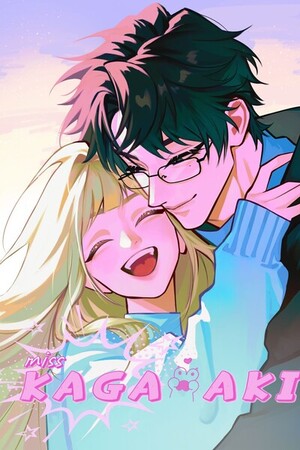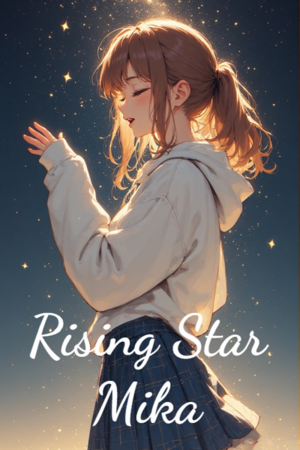Chapter 8:
Kettles Steam onto Warm Mittens
Crescendo at the End of the World
The next time he arrived, there was no rain, but he kept his umbrella. He kept the same attire, opening his pocket watch when he entered, holding his posture as stalwart he could. The umbrella, completely dry, seemed to help him walk, but when he reaffirmed his position, he let it rest on the wall. A few steps later, and he nodded, apparently getting accustomed to his legs.
“I see nothing has changed since last I was here. Though your other guest seems to be absent.”
“Like you, she has her own life to live.”
“I would hope so.”
Reaching into his coat, he produced a pair of worn gloves, letting them sit in his hands as I watched sitting in the middle of the room.
“I suppose this room of instruments would not help in this trivial matter.” He turned the gloves, exposing the tear and dirt scuffed throughout the wool; cracks abound in its make so fervent that it seemed at a touch it would disintegrate.
“You suppose correctly. I only know how to play music.” Though I had lied slightly, I figured it would be enough.
“I see.” He cleared his throat, depositing the gloves, and searched for another object within. As he did so he moved over to the piano, his hands glazing over the darkened material of its body, not a single finger print left stained. I figured it was the room’s way of subtly repelling his touch, preventing disruption.
“In that case, may I presume the same for these?”
In his hands were now oven mitts, large and flowery, puffing due to stitches that dangled from its seams, bits of cotton exposed and foamed like soap. The brief smell of baked goods eradiated from its make, masked along was slight city smoke and street musk.
“Try for as many as you like, but I don’t think I’m the all-powerful being you want me to be.” Something like laughter welled inside of me, but I smiled instead.
“No. I suppose no amount of pestering will change your mind. There is no doubt you have better use of your knowledge and ability.”
“You overestimate me.”
“Perhaps.”
Depositing the mitts into his coat, he rummaged once more, rattling in his pockets before presenting the source. In his hand was a small bag top-tied with a tag, the words indicating a brand in dusty font. One look around the room gave him enough to know that his intentions would not be met. However, he smiled, throwing the teabag onto my lap. To punctuate his next words, he pressed a single note, not out of random selection, but a clear neutral tone that demanded attention. He let it ring, but not enough for it dissipate, letting his voice carry along with the dying note.
“Before we proceed, I thought something soothing would be appropriate. If not for you, at least humor me.”
He found a chord, holding it down for emphasis again. The careful glares across the keys, and the way he held them produced something of mild experience.
“You will have to excuse me for my curiosity. It had been something of a passing fancy
in my youth. Trained to do many tasks, armed with knowledge and grace, it is how I have survived. I have not played in such a long time. It only felt appropriate to honor that past.”
He turned towards the door, walking away from the piano, his steps steady all the way
as he kept his eyes to the wooden floor, examining each tile as his foot came upon them. If he walked any faster, it seemed he would tumble, and if he walked any slower, it would have seemed he would be stuck in place. He found the perfect balance to feign normalcy.
“I assume I have permission to leave and enter as I please?” Though before I could answer he had already continued, “It was worth some amount of contention to try and get these fixed. My true intentions I will reveal in due time, and I do apologize for leading this longer than it should. Being in a place such as this, it unravels the mind.”
He filtered through his pockets, rumbling through the various objects to pull out his pocket watch, flicking it open, and staring at the contents.
“In all actuality, I do have one more object on my being, though with your lack help, I figured not to intrude on your time much longer.”
“I’m sorry. If I could, I would. Believe me.”
He nodded, and walked to his umbrella, tapping it twice on the wooden floor before adjusting it to himself.
“I have no reason not to. Though the extent at which you can do, I presume, is much more than you are letting. That much I am convinced.” In a large motion, he let his coat ruffle against the air, a flap resounding in the room, and in his movement I noticed the holes and cuts fraying the edges of the cloth. The way he presented himself never gave any chance to question the nature of his attire, and upon closer inspection, his hands were worn and dirtied. The dark dress shoes he wore was only feigning its shine, as it dulled with his every small step, and his hair, kept combed close to his head, was done overtly so, exaggerating his stature.
“I will return soon, I promise.” His words seemed steeped in a place beyond the situation we were in, his eyes still in his pocket watch, and with a single click it closed, bookending his visit. I paid close attention to what world his light would reveal, and so when he opened the door, turning an absent knob, I waited. The world outside flowed in its mixture of green and red vegetation, and when the light beamed over, I noticed brick and grime on the streets, broken bottles in corners, and discarded litter with unintelligible font.
The smell of smog wafted briefly through.
My perception of what things smelled like only existed tangentially, and I could logically attribute the idea of smells to the images I saw in my mind.
But that was the first time it had been so potent.
It was a dreary sensation.
*
It wasn’t long till his return, carrying in his free hand a clattering worn cardboard box, the label on the front scratched off. With a smile, he set it down, slight steam rising from the top, and pulled out a teapot, every action filled with gentleness. The remainder of the box’s contents was cups. They weren’t ornate, but instead decorated with all kinds of wounds; scratches and cuts, haphazardly glued together with all kinds of material, eroding the color like shells on a shore. A small bag of sugar was placed beside the pot, and once all had been set, I handed him the teabags.
“If you would, I have a story to impart upon you, it may or may not be circumstantial to my own plight, but it is an interesting one as we let our drinks settle.”
“Go ahead.”
He poured me first, and gestured towards the sugar, though, this would also be the first time I had ever tasted anything. Using the knowledge I had in my mind, I figured there would be equal pleasure or pain in accepting, and so I let him drop a few cubes before stirring. The scent of the tea wafted in the air, and I imagined it might have been the smell of burnt leaves, like an autumn blaze through a stilted day, like humid air on skin after a warm run across a sun-blasted park. But I had never felt those sensations myself. Attributing that smell again, it felt, warm.
It was warm.
It was warm, with a tilt of coolness seeped in from the sugar, and a smidge of cold air from the walk he inevitably made to return.
It was a gentle sensation the longer I let it linger in the room. For a brief moment, I focused too much, but before the avalanche of thoughts could consume me I was brought back by his words.
“The occasion might be brightened even more with choice music.” He stood with his cup, balancing every part of him along with the liquid, though it didn’t give him trouble. It seemed, as he moved to the piano, that everything had been calculated, as if he had no trouble at all, as if that was what he did all his life.
“I am certain you are more a master than a novice, however, do let me indulge again. I apologize prematurely for my nature. It is how I am, though I loathe it.”
Setting his cup on the free space near the music rack, he found a scale and climbed. It wasn’t music or a song he wanted to play, but a way to fill the air as he spoke closer to what he wanted to convey.
“A child is found on the streets, worn and battered, given disgusted glares from passerby. An innocent child, no more dangerous than a wandering cat.” The scales were simple enough to allow for his playing and talking simultaneously. Knowledge in my mind dictated it took some amount of skill to do so without breaking concentration. All the more, when he took a break from speaking, he reached with his freehand for the cup, taking a sip, spending a moment to admire the taste. All the while, still playing.
Realizing I hadn’t drank, I brought my cup to my lips, the aroma finding its way to me first, wrapping me in its warmness, and preventing me from getting any closer.
“He skittered across alleyways, and streets, travelling for as far as he could before collapse. Hunger the only force capable of stopping the entire world. And yet, he kept moving, he kept pushing forward.”
Lost in his words, I placed my cup down, never having taken a sip. I hoped he would never notice, though I was sure my hopes would fall to empty prayers.
“Can you foretell his fate?”
He added his left hand, giving support and tension to his question as he waited for a response.
“Death by starvation?”
Upon my answer he sustained all the notes at once, holding them as if he was a prompter on a game show. Though, he would never understand that sentiment, not from his time.
“That would be a common answer, and a common outcome. It really is.”
Letting the notes ring, he reached for another sip. After a moment, placing his cup down, taking a deep breath, the fragrance of our tea twirled together to fill the near-silence.
“But he was taken by a stranger. Found by another child on the street, sharing a loaf of bread between them, carrying him to the footsteps of his home, where his parents would nurse him to health, ask him all sorts of questions.”
He got up from his seat, travelling back for a refill, glancing briefly at my yet touched tea. I could only smile wryly back at his notice.
“Inquiry led nowhere. The starving child did not know his origins, only that he had been left to the fate destined by his birth. Can you foretell what may happen next?”
“The child is adopted by this family?”
He nodded, not in agreement, but in acceptance that my answer would be said. Cold tea somehow smelled different, but it was also pleasant in its own way, and it made me want to leave it out even longer.
“The child leaves for the streets again, waiting for the cycle where he is not found.”
*
As he finished drinking, he asked if I could play him a song, any song at all. He sat back straight near the teapot, fiddling with the handle, watching closely as I positioned myself in front of the keys, the outside grass swaying with its mixture of red, the bridge empty of passengers, and I wondered for a moment if anyone or anything would cross.
But nothing did.
I wondered what to play him, if playing a song beyond his time would cause some kind of ripple in time. Though, that was only tangentially true in the fiction that existed in my mind. Generic notes strung together could make a song, as long as some semblance of harmony and rhythm was intact, I could pass anything as music.
I still wondered why he needed my help.
Perhaps, I didn’t have enough information to assess him in that moment, but it seemed he was content with the way things were. Something in me told me that.
I couldn’t force anyone to talk with me about their problems, I could only wait and hope. I could hope that they would feel safe doing so, and that I could help.
The notes I played used common scales for practice and learning, running up C major as my left hand supported with chords in the same key. I slowly transitioned into D minor, moving where we started to a slower and more controlled tone. Once the notes started becoming comfortable, I began to imagine where I wanted to bring him with the sounds. But occupied in my mind was the story he told, and so we were on the streets, walking as day moved to dusk, as the sun left the sky like a painter missing their stroke, leaking bits of paint onto their canvas. Sounds of industry an apparition through the impoverished neighborhood, I brought us back by moving to major scales; night life arose. Playing even more, this night life morphed to a time beyond his. To a time thriving with dance, drink and music its own, a future worth living, a future where wars were already fought, and may scarce appear.
The last few notes brought us back to the empty streets and slow moving day, and wafts of the tea made me yearn for drink, and so the song ended on staccatos and jumps.
He laughed at the performance, not at the way I played, or the quality of sound, at least, I didn’t think so, but at the way it made him feel, as in his eyes, a glitter of tears were held.
Reaching for a drink, he raised an empty cup, laughing again at his actions.
“Your song, though unknown to me, was masterfully played.”
“It’s the only thing I can offer.”
He shook his head, waving me off.
“To say it is the only thing you can offer is to belittle your worth to the performance I have just heard. Undoubtedly it was a great performance, but a being such as yourself has much more than that.”
I hadn’t noticed when he had taken out his pocket watch, leaving it on the floor facing him, as if a mirror, as if it contained something much deeper than time.
“Such kindness is lost on me.”
“Rather than kindness, I am simply stating the truth.”
He didn’t stay much longer, grabbing his items, tidying the room, ensuring not a single droplet had fallen on the floor and not a single piece of litter remained.
“I do have somewhere to be. Though, I will return, that much I can promise.”
*
I never finished my tea, or drank it at all as he poured it back into the pot to be disposed later. The scent never really left.
I wondered, as he left, what it might have been he needed.
Imagining and guessing at what his next encounter might bring, made it less interesting, and so I simply watched the sway of the outside world as I hummed away until then.




Please sign in to leave a comment.